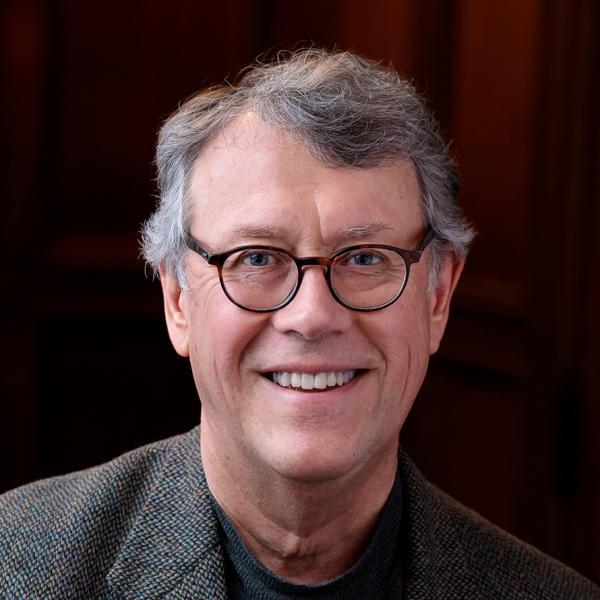Academic Bio
Phil Bohlman’s teaching and research draw upon diverse methods and perspectives in music scholarship to forge an ethnomusicology built upon foundations in ethnography, history, and performance. He is particularly interested in exploring the interstices between music and religion, music, race, and colonial encounter, and music and nationalism. The study of Jewish music in modernity has provided a primary focus for his research for four decades, and since 1998 has provided the context for his activities as a performer, both as the Artistic Director of the New Budapest Orpheum Society (a Jewish cabaret and ensemble-in-residence at the Humanities Division), and in stage performances with Christine Wilkie Bohlman (the College) of works for piano and dramatic speaker created during the Holocaust. With the New Budapest Orpheum Society, Phil has released four CDs, most recently As Dreams Fall Apart: The Golden Age of Jewish Stage and Film Music, 1925–1955 (Cedille Records 2014). His work in historical performance has been recognized with the Noah Greenberg Award from the American Musicological Society and the Donald Tovey Prize from Oxford University. Since 2008, Phil has been conducting research India, especially in Kolkata, Varanasi, and rural West Bengal. His research on the Eurovision Song Contest is ongoing (see, for instance, his OUPblog post).
Since 2009, Phil has taught and conducted workshops in Germany at the University of Hildesheim and the Hochschule für Musik, Theater und Medien Hannover, where he is also an Honorary Professor. He is the author or editor of many books in English and German, with translations into numerous languages. The first edition of Music, Nationalism, and the Making of the New Europe received the Derek Allen Prize for Musicology from the British Academy. His article, “Analysing Aporia” (twentieth-century music), received the 2013 Jaap Kunst Prize from the Society for Ethnomusicology. His edited volume, The Cambridge History of World Music, received the 2015 Bruno Nettl Prize from the Society for Ethnomusicology. In 2016, Phil and the New Budapest Orpheum Society were nominated for a Grammy Award for their double-CD, As Dreams Fall Apart. Most recently, he has published Hanns Eisler: In der Musik ist es anders (with Andrea F. Bohlman; Hentrich & Hentrich 2012), Balkan Epic: Song, History, Modernity (with Nada Petković; Scarecrow 2012), Revival and Reconciliation: Sacred Music in the Making of European Modernity (Scarecrow 2013), Wie sängen wir Seinen Gesang auf dem Boden der Fremde! (LIT Verlag 2017), Song Loves the Masses: Herder on Music and Nationalism (University of California Press 2017), and the edited volumes, The Cambridge History of World Music (Cambridge 2013), This Thing Called Music: Essays in Honor of Bruno Nettl (with Victoria Lindsay Levine, Rowman & Littlefield 2015), Resounding Transcendence: Transitions in Music, Religion, and Ritual (with Jeffers Engelhardt; Oxford 2016), Jazz Worlds / World Jazz (with Goffredo Plastino; Chicago 2016), and Sounding Cities: Auditory Transformations in Berlin, Chicago, and Kolkata (with Sebastian Klotz and Lars-Christian Koch; LIT Verlag 2017).
Phil’s current research includes an introduction to the study of ethnomusicology for Cambridge University Press and a book on music and global nationalisms for Oxford University Press, for which he received a 2013 John Simon Guggenheim Memorial Fellowship. With fellowship support from the Alexander von Humboldt Foundation he conducts ongoing research on the rise of modern music scholarship in Berlin for the project, “Jüdische Musikforschung in Berlin, 1900 bis 1950.” In 2015, he collaborated with colleagues at the University of Wisconsin-Madison and the University of Illinois at Urbana-Champaign to inaugurate the multi-year project, “The History of World Music Recording,” as part of the Mellon Foundation’s “Humanities Without Walls” initiative.

